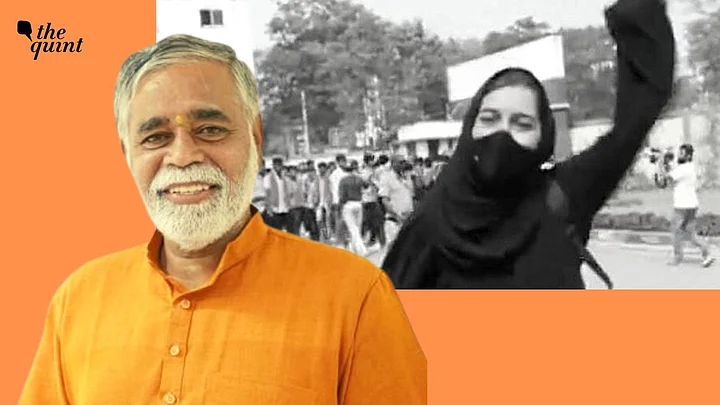The Supreme Court bench hearing petitions challenging the 15 March Karnataka High Court verdict on the hijab ban issue in educational institutes of the state has given a split verdict.
Reacting to the order given out by justices Hemant Gupta and Sudhanshu Dhulia on the hijab ban issue, Karnataka Minister for School Education and Literacy BC Nagesh welcomed the verdict, but expressed his dissatisfaction saying that it could have been a better judgment.
In an interaction with reporters in Bengaluru, Nagesh said that he expected a better judgment as women across the globe have been protesting against the imposition of hijab and burqa.
"We will continue to have a ban on wearing hijab in schools until the Supreme Court gives its final verdict. This is because the high court order in Karnataka remains applicable in the interim time," added minister BC Nagesh.
Karnataka Government to Continue Hijab Ban till Final Verdict is Out
Pointing out that the protests have intensified in Iran and other West Asian nations against the use of hijab, Nagesh asserted that nobody can wear hijab inside classrooms until the Supreme Court gives it final verdict.
As of now, Justice Hemant Gupta dismissed the appeal against the Karnataka High Court's verdict, while Justice Sudhanshu Dhulia allowed the appeal made by the petitioners.
With the Supreme Court pronouncing a divergent verdict on the validity of hijab ban, the matter is now being listed before the Chief Justice of India, who will set it up before a larger constitutional bench.
When questioned about the students dropping out of school and organisations supporting the demonstrations in favour of hijab, minister BC Nagesh told the reporters in Bengaluru,
"Some people always want to split this society. Now, these organisations are using the controversy surrounding hijab to split our society."
While the opposition has accused the Bommai-led government of conspiring and stoking communal tensions using the hijab row, the BJP has remained defiant and has claimed that it was upholding education and separating it from religious indoctrination.
Meanwhile, security has been heightened in parts of Karnataka, particularly in Dakshina Kannada and Udupi districts to avoid any form of violence.
Speaking to The Quint, Superintendent of Police in Udupi, Akshay Hakay said, "We have taken precautionary measures and are patrolling sensitive areas. Social media is also being tracked to ensure no trolls and miscreants are spreading hate and misinformation."
In December 2021, six female students studying in Udupi's Government Pre-University College were denied entry inside classrooms saying that hijab was not allowed.
The legislator of the constituency who also headed the college's development committee also asked the girls to follow dress code and abide by the rules.
Relentless, the girls wore hijab and protested against the school's order, and had also filed a writ petition in the Karnataka High Court, which ruled in favour of the state and the hijab ban.
(At The Quint, we question everything. Play an active role in shaping our journalism by becoming a member today.)
